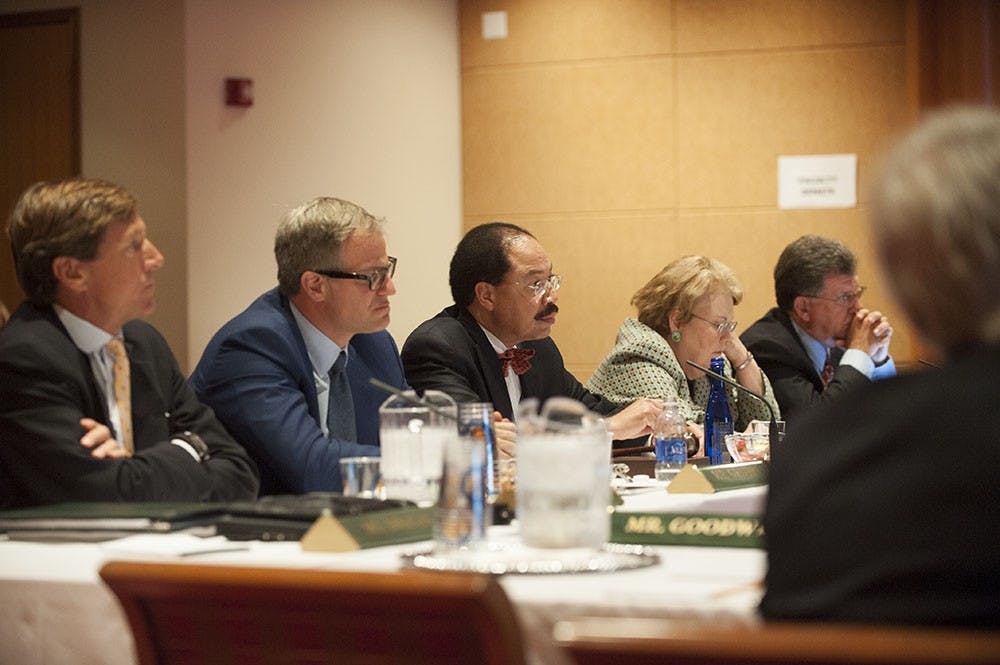Following the White House’s Not Alone initiative, designed to prevent sexual assault at universities across the country, the University plans to implement a new three-step prevention process.
The first step in this process is implementing a "Campus Climate Survey,” which is currently in development. This survey is designed to increase awareness about the prevalence of sexual assault among participating universities.
Rutgers University is leading the development of this survey and will share the finalized product with members of the Association of American Universities, an association of 62 leading public and private research universities in the United States and Canada, including the University.
Barry Toiv, vice president for public affairs for the AAU, said the survey is focused on learning from students about the specific issues facing their campus.
“[The survey] may help us improve public understanding of the issue of what students’ concerns are and how they perceive the situation on their campus,” Toiv said. “It’s very hard for policymakers and administrators right now to have a really strong sense of where this student body is caught on these issues of concern.”
Toiv emphasized the importance of asking students the right questions.
“The AAU, as an association, is focused on … that sort of big, foundational question of it being hard to solve a problem without being certain of the nature of the problem,” Toiv said. “Obviously, we know the problem that they’re trying to address, but without having a good, strong sense of that student perspective … and without asking the right questions, it’s much harder to set policy.”
Step two of the University’s plan will be to both prevent and engage men in the prevention of sexual assault. The White House’s Not Alone report, published in April, emphasizes the importance of men in the fight against sexual assault.
“Most men are not perpetrators — and when we [participants] empower men to step in when someone’s in trouble, they become an important part of the solution,” the Not Alone report reads.
Fourth-year College student Meg Gould, student representative to the Board of Visitors, said the University will send out “educational modules” to the students this November.
“It’s an educational movement,” Gould said. “We’re trying to create a cultural change in our community through education.”
Gould emphasized that the Board hopes increased prevalence of education on sexual misconduct will encourage students to participate in the movement against sexual assault.
The University’s initiative is “trying to get these types of conversations going, trying to start information sessions [and] making them visible on social media,” Gould said.
According to the report, the Not Alone campaign intends for students to “leave college knowing that sexual assault is simply unacceptable.” Additionally, it plans to assist universities in “promoting bystander intervention education,” while also “developing new prevention strategies,” engaging the entire University population in these efforts.
Step three, then, is to “effectively [respond] when a student is sexually assaulted.”
This year, the University introduced a new reporting policy which mandates that faculty and staff who fall under the "responsible employee" category report instances of sexual misconduct to the University's Title IX coordinator. Though most employees are considered "responsible employees," those in health care or counseling are considered "confidential employees" and are exempt from the mandatory reporting requirement.
"It’s not a top-down effort anymore, but an infused effort between students and faculty members to combat sexual assault,” Gould said.
The University will continue to implement a reporting and confidentiality protocol, while introducing steps to ensure accountability among University staff. A number of new training and reporting programs have emerged from this effort, including programs for those investigating alleged sexual misconduct. The University will also create several memoranda of understanding to send to community officials, including Charlottesville law enforcement and rape crisis centers.
Gould said the effects of this movement against sexual assault may already be felt.
“This very conversation wasn’t happening last year at this scale,” Gould said of the growing prevalence of knowledge about the dangers of sexual assault and how to approach sexual assault cases. “There won’t just be one climate culture survey. There won’t be just one training module. There’ll be many. Throughout the year [the movement] will be noticed.”
Correction: A previous version of this article stated that the "educational modules" would be sent out in December instead of in November.







